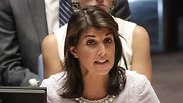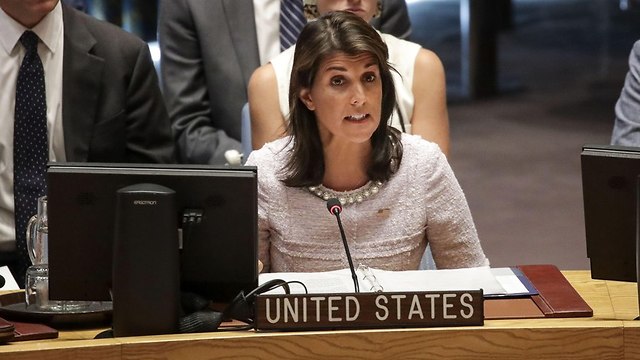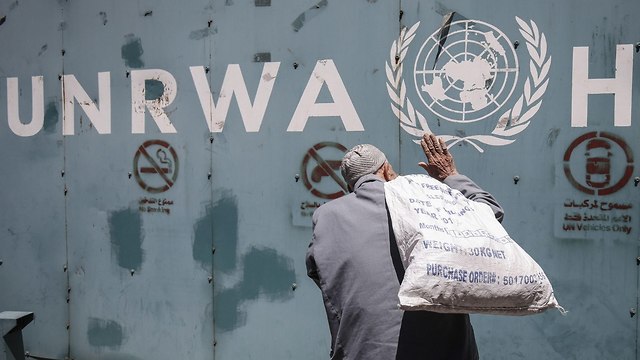
US Ambassador to the United Nations Nikki Haley on Tuesday appeared to question the world body's count of Palestinian refugees, the latest in a series of steps by the Trump administration challenging how relief aid is delivered to the Palestinians.
In remarks at the Foundation for Defense of Democracies, a Washington think tank often sympathetic to Israel, Haley agreed with a questioner who suggested that the UN Relief and Works Agency (UNWRA), which helps Palestinian refugees, overcounts their number.
The United States earlier this year cut its aid to UNWRA to $60 million from a promised $350 million for the year.
"We will be a donor if it (UNRWA) reforms what it does ... if they actually change the number of refugees to an accurate account, we will look back at partnering them," Haley said.
UNWRA says it provides services to about 5 million Palestinian refugees. Most are descendants from individuals who fled Palestine in the 1948 war that led to the creation of the state of Israel.
On another emotionally charged issue, Haley also questioned the "right of return" to Israel, claimed by the Palestinians as part of any eventual peace settlement.
Asked whether the right of return should be "off the table," Haley replied: "I do agree with that, and I think we have to look at this in terms of what's happening (with refugees) in Syria, what's happening in Venezuela."
"So I absolutely think we have to look at the right of return," she said.
US President Donald Trump and his aides say they want to improve the Palestinians' plight, as well as start negotiations on an Israeli-Palestinian peace agreement.
But under Trump, Washington has taken a number of actions that have alienated the Palestinians, including the recognition of Jerusalem as Israel's capital.
The status of Jerusalem—home to sites holy to the Muslim, Jewish and Christian religions—is one of the biggest obstacles to any peace agreement between Israel and the Palestinians.
The United Nations says the status of the ancient city—whose eastern sector was captured by Israel in the 1967 Six-Day War—can only be resolved by negotiations.
At the Foundation for Defense of Democracies, Haley also spoke about the monthly "Israel bashing sessions" at the UN, noting "I knew that there was a bias against Israel, but I hadn't really put a lot of thought into it until I attended the first session. And when I saw literally how abusive all of those countries were being to Israel in a way that was pathetic, really, I had no choice but to get up and say this is completely wrong."
"It's like that kid in the schoolyard that gets bullied and everybody is bullying the kid just because they think it makes them stronger. I wasn't going to stand for that," Haley added. "They're supposed to be sessions on the Middle East, not sessions on Israel. And so now we're actually making them talk about other areas in the Middle East and how we're dealing with those ... and now frankly they're scared to say anything negative about Israel because they don't want me to yell at them."
The American ambassador also described a meeting she had with President Donald Trump. "I went to the president one day and I gave him a book. And in that book, I showed him every country and the money we give them and then I showed him the voting sheet and all those things, and I said at some point—it's not that we should solely look at UN voting, that is not what I'm saying. What we should do is, the countries that we give money to, do they believe what we believe? Are they still actually wanting to be our partner and work with us? If they're not and they're shouting, 'death to America,' why would we give them a single penny?" she explained.


















